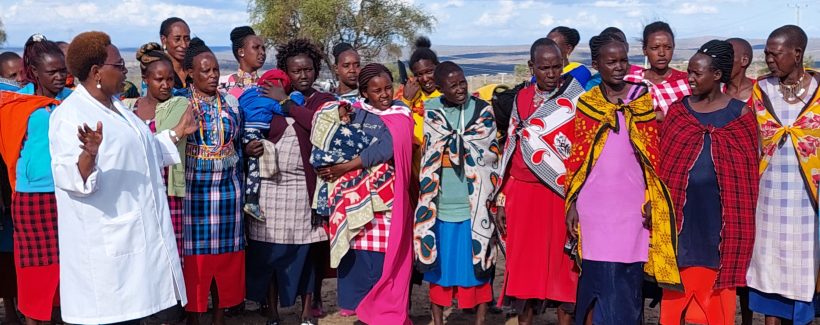
(Photo: 2010 AWARD Fellow Esther Kanduma at a sensitization workshop with women pastoralists in Baringo county, Kenya. Photo Credit: KeAWARD)
As the world convenes in Egypt for COP 27 to accelerate action toward climate goals, we are pleased to announce that our country chapter, Kenyan Women in Agricultural Research and Development (KeAWARD), has been named one of the winners of the TWAS – Elsevier Foundation Project Grants for Gender Equity and Climate Action. The grant is a new programme by UNESCO-TWAS and Elsevier Foundation established in response to the dual need to support women’s well-being through the capacity-building of female scientists and respond to the causes and consequences of climate change with concrete action-based projects under the umbrella of the “climate action” SDG.
KeAWARD was awarded the grant for their project on “Ufugaji bora, Uhai wetu,” two Swahili phrases meaning “Climate-smart pastoralism Our lifeline.” The project seeks to promote methane-free probiotic feed additives that will replace methane-producing microbes in livestock to reduce emissions from livestock, contributing to climate change mitigation.
Led by 2010 AWARD Fellow Esther Kanduma, the country chapter’s Vice Chairperson, the project Ufugaji bora, Uhai wetu targets women and girls in pastoral communities in arid and semi-arid counties in Kenya. The project aims to empower women in the cultivation and conservation of climate-smart drought-tolerant nutrient-rich exotic fodder grasses and seeds to rehabilitate degraded lands, provide fodder security and adapt farmers to drought and famine, providing preserved fodder in silos.
Livestock keeping is vital to the livelihoods of millions of pastoralists living in Arid and Semi-arid (ASAL) counties, which are always severely affected by climate change. Yet, livestock accounts for 32% of global methane emissions through enteric fermentation and manure decomposition. That is why KeAWARD, through “Ufugaji bora, Uhai wetu,” is responding to the need for a resilient and sustainable climate-smart solution for women and girls pastoralists.
Universally, nearly 200 million nomadic pastoralists live in remote and harsh environments where conventional farming is limited or not possible. Women and girls’ pastoralists already face several limitations in their communities, like poor access to resources, and climate change only makes an already bad situation worse. Esther notes that pastoral women and girls must be part of sustainable climate actions to achieve resilient communities effectively.
“In Northern Kenya, women and girls who look after livestock are most vulnerable and bear the brunt of the frequent drought and famine. Yet, they are usually left out on important opportunities like decision-making, capacity building, and empowerment,” says Esther.
The project will also train the women on sustainable bee ecology and conservation, including beekeeping enterprises, to improve community resilience in the face of climate change. Esther explains that honeybees play a significant role in pollinating wild plants and crops, thus contributing to food security, environmental conservation, and availability of carbon sinks, thus contributing to climate change adaptation.
Similarly, the project aims to empower high school girls through science outreach hands-on activities on the role of ruminal microbes in environmental pollution and other relevant mitigation strategies.
KeAWARD uses a multipronged approach to address key food security concerns to achieve sustainable development. The chapter is actively involved in gender-responsive activities that promote agricultural production and environmental conservation both as an entity and in collaboration with grassroots communities, women and girls, county governments, and local, regional, and international partners. For instance, the chapter partnered with International Veterinary Vaccinology Network (IVVN) to deliver the African Schools Outreach Program (ASOP). ASOP provides African women in STEM careers with the skills and resources to host interactive, hands-on science experiment workshops in high schools to mentor, build capacity, and inspire the next generation of women scientists in Africa. The chapter has engaged over 22 schools and impacted over 10,000 women and girls through mentorship training and hand-on hands-on experiments in Kenya.
In line with this, KeAWARD has also partnered with Kenya’s Ministry of Agriculture and Livestock Development, Kenya Agricultural and Livestock Research Organization (KALRO), and the International Veterinary Vaccinology Network (IVVN) to ensure the success of “Ufugaji bora, Uhai wetu.”
AWARD country chapters bring together AWARD Fellows, Mentors, Fellows’ mentees, and others interested in driving the agenda for gender-responsive agricultural research and development. They catalyze networks for advocacy, knowledge sharing, and intra-country collaboration and amplify the impact of AWARD’s work, taking it into local communities and institutions where fellows live and work.
Congratulations KeAWARD!
